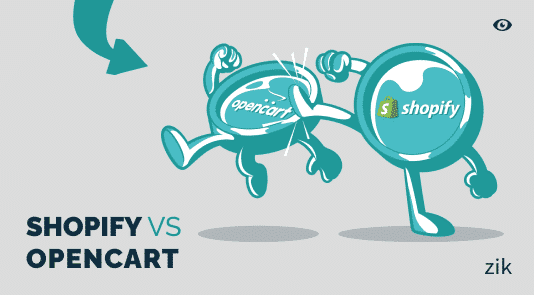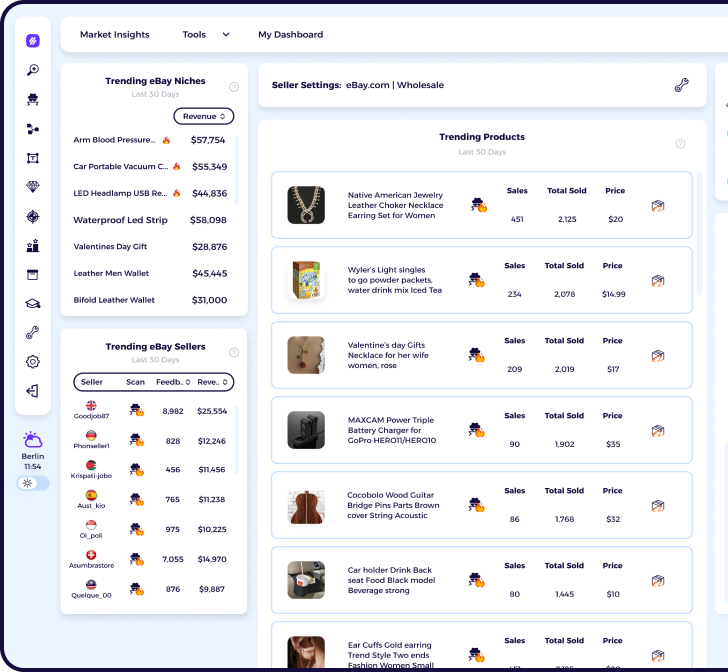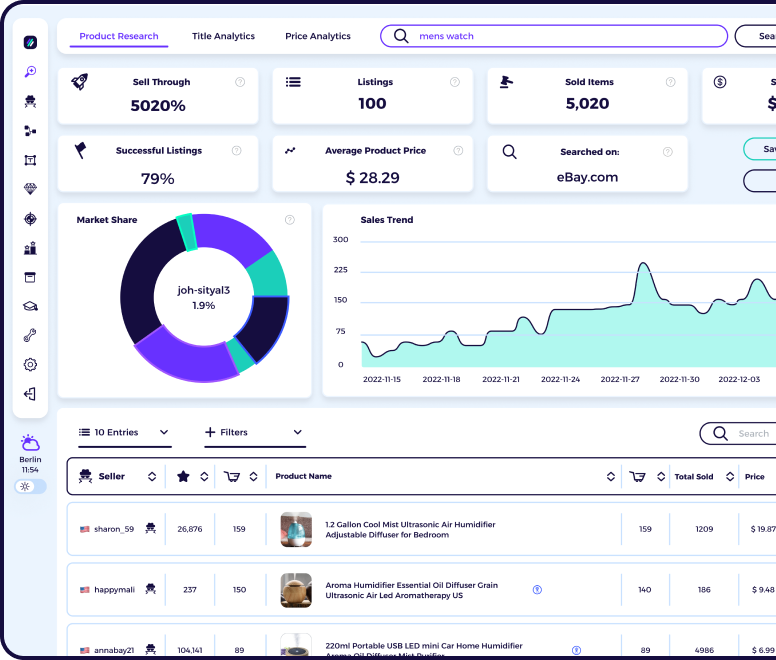Gone are the days when you need to break the bank and hire a team of expert website developers to make you an e-Commerce site for your online business. These days, anyone can setup their online store in a matter of minutes, as there are tons of resources and tools to get you started.
From eCommerce solutions, ecommerce hosting, and ecommerce platforms, you don’t need previous web design experience to build your store from the ground up.
The tricky thing, however, is that having too many options can make it daunting for people to decide which service to choose. Two of the most popular options right now are Shopify and Opencart.
But what can these ecommerce platforms actually offer?
OpenCart and Shopify have pros and cons, so which is the right ecommerce platform for you?
Here’s our comprehensive breakdown of Shopify vs Opencart.
Article Overview:
What is Shopify?
What is OpenCart?
Key Differences
Setting Up The Store
Pricing
Features
Themes
Support
Design and Customization Options
Marketing & SEO
Fees
Summary
What is Shopify?

Housing more than 4 million ecommerce businesses and websites worldwide, Shopify is, by far, the most dominant open source ecommerce platform in the market today. It has all kinds of businesses. This ecommerce platform has all kinds of businesses, from small to large scale.
As a fully hosted platform subscription-based SaaS (software as a service) solution, it became an easy-to-use tool for startup brands and successful entrepreneurs. It gives its users the power and freedom to make fully-functioning online stores without the hassles and exhaustive marketing functionalities and optimization features.
Aside from the modern online store, merchants in this platform also have the capabilities to sell on social media, seller marketplaces, various websites and blogs, and even through email, chat, or text.
The platform seamlessly centralizes all business data from their merchants, the products, customers, and operational tasks, all in one system.
What is OpenCart?

Like Shopify, OpenCart is also a free open source ecommerce solution that gives users the platform to sell and purchase products online. But unlike Shopify, it is completely free.
As of writing, this platform holds about 4% of usage distribution on the entire web, roughly around 430,000 live sites. It also ranks 5th in the list of open-source web builders.
Since it is free, there are no monthly fees for using this platform. The good thing about it is, even though it’s free, it already comes with a robust store management tool, which will help your online business in all areas you need, from built-in SEO tools, products and coupon codes, orders, managing customers, tax rules, and more. To improve and personalize the aesthetics and functionality of your store, you can choose from their wide array of modules and themes.
This platform is best for small to medium-sized online businesses and is highly regarded for its multiple store management system.
Shopify vs Opencart: Key Differences
Shopify and OpenCart are like apples to oranges; they are very different in terms of their ecommerce solutions for online selling. The former intends to give businesses and entrepreneurs everything they need to build an online business and start selling online from the ground up immediately. It provides free templates as part of its pricing. Users can start building their store with a shopping cart easily.
Depending on your experience and interest in exploring the many functionalities and features, Shopify offers customization options and plugins to make your store as unique as you want. You don’t have this flexibility with OpenCart.
OpenCart is an open-source solution that provides the most basic tools to set up an online store. Though they have plenty of options to help you change through coding. With OpenCart, you will need some basic technical knowledge or web development skills to take full advantage of its open source solutions. But you can make your store stand out if you have some background in that area.
Here is a quick breakdown of the key differences between the two:
- OpenCart’s customer satisfaction is 95%, while Shopify has a whopping score of 99%.
- Shopify houses thousands of plugins accessible through the app store. OpenCart has fewer options.
- OpenCart requires some technical skills, but Shopify is incredibly easy to use.
- Shopify is a paid platform, and OpenCart is free.
Opencart vs Shopify: Setting Up The Store
Unlike in some open source platforms (i.e. Magento), setting up your online store in OpenCart is easy. It provides a user-friendly interface that both seasoned programmers and novices can tweak. Moreover, OpenCart provides a pretty simple yet immersive interface and admin panel. This means you can get up to date quickly with basic coding skills. You will need at least a PHP 5.4 hosting system and a free server space of around 500 MB to get started. You will also need a MySQL database, so check that with your hosting service.
Installing it doesn’t is fast and easy; it can be done in minutes. However, adjusting all of the elements to customize and suit your needs may take a lot of time compared to Shopify. This is especially true regarding your store’s design layout and overall functionalities. Template installation may also take some time, but this is entirely up to your choice of customization.
When it comes to Shopify, however, you can have everything up and running in just a few minutes, and you don’t need a web developer or web development skills to do that. The hosting service comes with unlimited bandwidth. All you need to do is buy your ideal domain name, and voila! You can jump straight into the building process.
Almost everything is drag-and-drop. This means you can design your site’s layout by choosing, dragging, and dropping elements around. Don’t want to go through all that hassle? Well, you can choose from their wide array of professionally-designed themes.
Don’t want to purchase from Shopify? Aside from their full-site migration, they also let you secure domains from other platforms. It’s entirely up to you.
Opencart vs Shopify Pricing
A lot goes into becoming a successful online store, and picking the cheapest one doesn’t mean higher net income or better cash flow. However, it is also important to remember that budget is one of the most crucial aspects of running a business. Fortunately, both options offer affordable solutions, depending on your needs.
OpenCart Pricing
OpenCart platform is free to download and install. However, you still have to pay to complete your store and run it, such as domain name, hosting, additional extensions, and an SSL certificate.
Shopify Pricing
Shopify offers five pricing plans; Shopify Basic (best for starting businesses) is at $29 USD per month. Growing and more advanced businesses can take advantage of higher plans ($79 and up) with more useful features and functionalities. You can, of course, choose to save big in your plans if you purchase annual (10%) and two-year (20%). Their most expensive and extensive plan can cost $2,000 USD, but it is designed for enterprise companies.
There are also additional fees associated with each plan, such as transaction fees and domain name; both are affordable.
Opencart vs Shopify Features
Another important factor that you definitely need to consider when choosing between these platforms is the features and functionalities. You need both to achieve your goals for your online store.
OpenCart Features

OpenCart doesn’t have a long list of features but has all the basic functionalities needed to build an online store. You can list unlimited categories, subcategories, products, brands, manufacturers, etc., on your store. You can even have both your physical and digital products side-by-side.
While the admin portal is set in English, you can list products with a price range of currencies for your customers overseas. You can also include add-ons for currencies and foreign languages.
OpenCart offers multi-channel selling while you run various storefronts from the same admin panel. You can also integrate your store with various shipping methods and providers. To help you reduce common closing issues like abandoned carts, they offer guest checkouts for customers that want accounts.
They also offer users access to coupons and discounts. Plus, they have plenty of SEO tools to help you index your pages, as well as reporting and analytics to help you keep track of your site’s performance. OpenCart platform also offers recurring payments for subscription-based products. Customers can also leave reviews to boost your social proof.
OpenCart’s other advanced features include:
- Backup and restore tools
- Blogging and SEO functions
- Customer search filter
- Integration for add-ons and plugins
- Integration modules
- Multi-channel integration
- Physical and digital products
Shopify Features

The space in this entry is not enough to list down all the features of Shopify. This ecommerce platform has virtually everything you need to set up a store on the web, which makes it quite appealing to business owners and entrepreneurs. It is the most comprehensive open source platform in the market and caters to businesses of all sizes.
Shopify’s hosted platform gives users access to its CSS and HTML elements, and they come with both premium and free templates you can choose for your site. They also offer multiple payment getaways and payment options, such as credit cards and PayPal. Shopify support global currency too.
Other advanced Shopify features include:
- Access to domain name
- Both free and premium theme options
- Cart recovery for abandoned carts
- Customer accounts and profiles
- Drag-and-drop website building functionality
- Dropshipping fulfilment
- Email templates
- Marketing templates
- Multiple payment gateways
- Product and inventory management
- Reviews and testimonials for products
- Social media integrations
- SSL certificate
There is no limit to what you can do and achieve with Shopify, and things are only improving. As a matter of fact, users can now access advanced reports or create applications for their websites and their customers to use with their smartphones.
Shopify vs Opencart Themes
When it comes to the themes, both offer a wide array of good themes to choose from. For OpenCart has more than 500 themes to choose from, both free and paid. The default, of course, is available for free.
All of their themes are fashionable and intuitive. Moreover, they allow users to modify any components of their sites. If you have the skills (even just the basics) and are interested in tweaking HTML, CSS, or PHP code, you can always improve your site and make it stand out above the rest.
Administrators of OpenCart sites have the freedom to customize their front store (change certain product’s positions, edit descriptions and prices, disable categories, upload banners, and more. All by simply using the admin panel.
On the other hand, Shopify has more than 100 free and professional themes, which are eye-catching and mobile-responsive. Nowadays, the latter is absolutely a must for online websites, as more and more people are shopping and buying online through their phones.
Shopify offers two ways of editing the templates. Moreover, users of Shopify can customize the template, from the colors, social media button, and more. All of these things can be done without using any sort of coding. Users can tweak the theme and adjust it at the front end.
Opencart vs Shopify Support
It’s no secret that running an ecommerce website can be demanding. Problems can be amplified when you experience problems with your site. This is where the importance of good customer support gets into the picture.
With Shopify’s fully hosted platform, you can expect superb customer service. They can be reached via phone, live chat, email, and Twitter.
For OpenCart, however, the level of support is nowhere as good as its premium competitor. You can open a support ticket for your complaints or concerns; they will answer you as soon as possible. Waiting time can vary.
There are community forums for basic troubleshooting and expert advice. However, some forums are riddled with developers that offer to solve your problem for a fee.
If you prefer to fix the problem on your own instead of paying someone, you can simply search online for tutorial blogs and videos on how to do the fix.
Opencart vs Shopify Design and Customization Options
People want to do business with brands they can connect with. Your goal as a brand is to build relationships with them and ensure your organization (or brands) stands out from the competition.
Shopify made it incredibly easy to adjust and customize your site based on your needs. Changing the looks of your site is quite easy. They also offer instructions to help ensure that the website you create is right for you.
OpenCart, on the other hand, offers plenty of customization options if you know how to do the codes. While you may have the freedom to change your website the way you want it to look like, the tricky thing is, doing these changes can be quite difficult.
Opencart vs Shopify Marketing & SEO
Another important aspect to consider when choosing from Shopify vs Opencart is the marketing tools available. It’s a crucial factor for Opencart and Shopify store owners because the search engines offer the biggest source of ecommerce traffic. Therefore, you must prioritize accessibility to SEO and marketing tools when choosing an e commerce platform.
Luckily, Opencart is well-equipped in the marketing and SEO department. However, you cannot expect the platform to optimize your ecommerce website – it’s up to you to tweak the finer details to match the requirements of your ecommerce business.
You can optimize basic SEO features and relevant SEO principles for an ecommerce website, such as the meta data, meta tags, product descriptions, and categories. But for access to advanced and many marketing functionalities, you would install SEO extensions and third party tools.
Speaking of third party tools, both Opencart and Shopify can integrate a product research tool that helps you boost the online sale for your ecommerce website. You can implement it into the Opencart software and your chosen web platforms to identify the best-selling items to add to your online stores. You can also access keyword research functionalities that help you identify the best terms to target when creating titles and product descriptions. You can integrate the long- and short-tail keywords for optimized titles that rank higher on search engines.
Fortunately, Shopify offers third party integration to ensure you can optimize the marketing tools available from the platform and third party providers. But Shopify gets the upper hand on the marketing and SEO department of this Shopify vs Opencart comparison. It is more loaded with SEO features and even links with social media platforms to generate more backlinks to your ecommerce business website.
Opencart vs Shopify Fees
The fees associated with running your ecommerce business is a critical consideration as you choose the best ecommerce platform, especially Opencart vs Shopify.
Opencart is an open source solution, which means it is free to install Opencart. There is also a free trial available for seven days. However, fees and costs trickle down once you set up your ecommerce site. The hosting plan with Opencart starts at $10 per month and $10 annually for your custom domain name.
There is no free SSL certificate when you install Opencart, so consider that an added cost for setting up your website. And the themes are either paid or free. If you want better-looking websites, you can expect to pay more for the themes.

With Shopify, the monthly subscription fees include unlimited products, web hosting, staff accounts, and a robust ecommerce platform. While Shopify is more expensive upfront, it gives more value for your money in the long run.
Summary: Shopify vs Opencart
Now, who wins the battle between Opencart vs Shopify? Shopify offers a more comprehensive solution despite Shopify’s pricing being slightly higher than the pricing Opencart offers.
If you want to grow your ecommerce business, you’ll have access to more advanced tools for ecommerce, such as inventory management and multiple payment gateways with Shopify. That’s why it remains the leading choice for business owners looking for a hosted platform solution.
Want to review our other Shopify comparison articles?
Check out our comparisons of Shopify vs:






